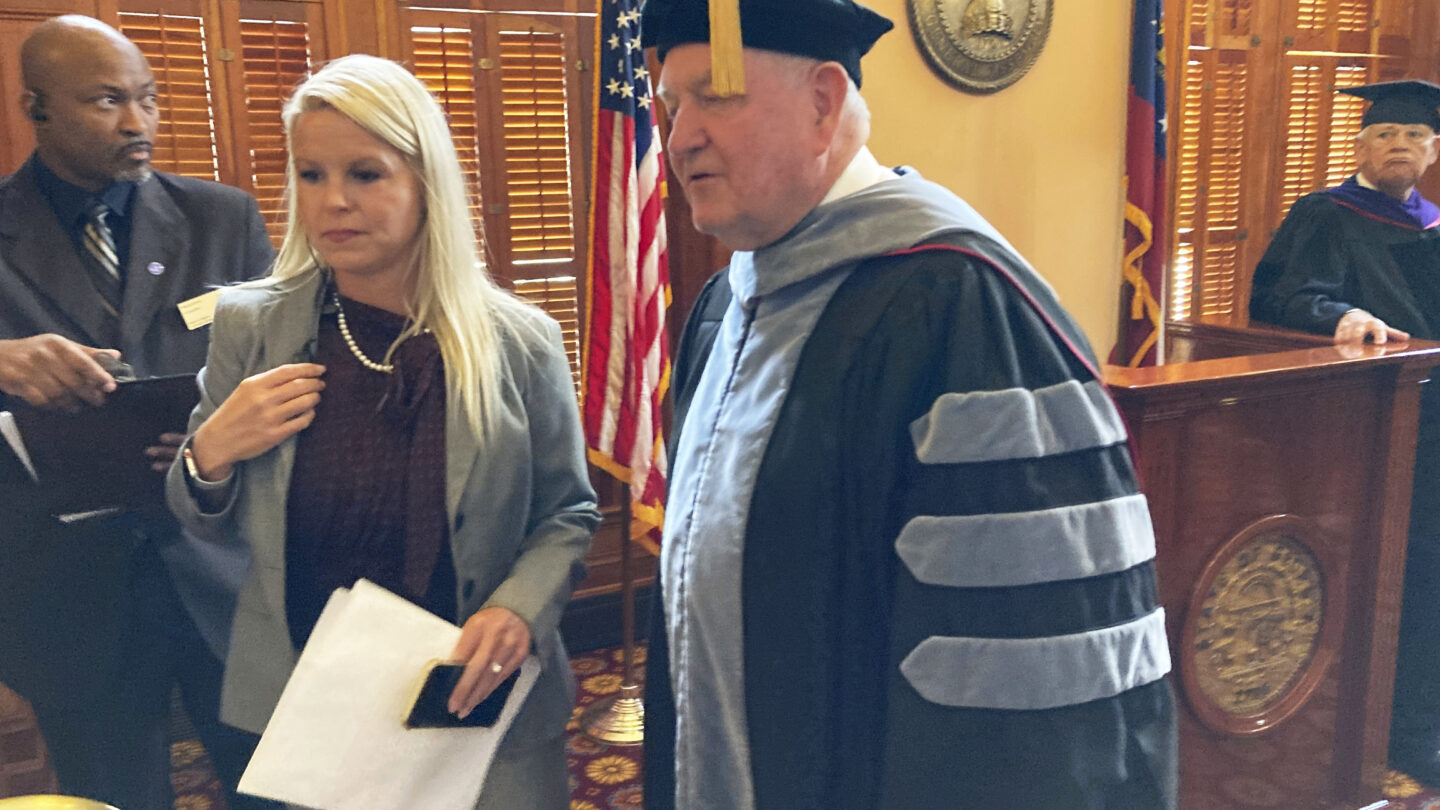Perdue: Georgia universities might recoup $66M budget cut

As Georgia’s public universities mull whether to raise tuition, Chancellor Sonny Perdue says he hopes state lawmakers will restore the $66 million they cut from the system’s teaching budget when they return next year.
“I’m encouraged by the fact that we think that will be restored as we come into the amended budget,” Perdue told regents Wednesday during a meeting at the University of North Georgia in Daholnega.
The remarks came as the Board of Regents delayed setting tuition for the 2023-2024 school year until May, saying they needed more time to decide how to handle the cuts.
State senators, who insisted on the cut, said universities should cover the shortfall with some of their roughly $500 million in cash on hand. The University System of Georgia, which has 26 universities and colleges has a total yearly budget of $9 billion including state money, tuition and fees and other revenue.
Gov. Brian Kemp, a Republican and close ally of Perdue, hasn’t yet signed the budget for the year beginning July 1 that contains the $66 million cut. Normally, a governor proposes changes in January to the budget. When asked whether Kemp would seek to replace the money, spokesperson Garrison Douglas wrote in an email Friday that “the governor and chancellor regularly have conversations on how we can best maintain our world class higher-ed institutions.”
Perdue and other officials told regents this week that 82% of the cash on hand is held at only six institutions, including its four research universities — Augusta University, Georgia State University, Georgia Tech and the University of Georgia — and that much is already earmarked. Officials said universities need to use the money for other purposes.
“Continued use of one-time funds for ongoing operating costs is not sustainable,” a slide presented to the regents stated.
Tuition increases are one possible outcome, although officials didn’t say how much might be considered. Kemp vetoed a bill earlier this month that would have required regents to get legislative permission before raising tuition and fees by more than 3%. Kemp said the bill violated the state constitution by infringing on regents’ authority.
Last year, costs to students fell 7.6% systemwide, as regents eliminated a fee charged on top of tuition. The typical Georgia school is charging in-state undergraduates $6,360 this year, down from $6,716 last year.
Perdue argued that the money to eliminate the special institutional fee did not replace the $230 million lawmakers cut from the system in the spring of 2020, when they feared a sharp nosedive in state revenue because of COVID-19.
“That was a zero sum game for institutions,” Perdue told regents.
Officials also said universities spent $100 million this year to give state-mandated $5,000 raises to employees not covered by state funding, and will spend $40 million beginning in July to give additional $2,000 raises to the same employees.
Perdue pledged the system, which hasn’t raised tuition in five of the last seven years, is still trying to find a way around doing so. He said the system could spend one-time funds, or allocate state aid to try to help schools where falling enrollment is also pressuring budgets. Enrollment is falling fastest at smaller institutions more reliant on state funds and tuition.
“I want the governor and the legislature to know we’re committed to maintaining affordability,” Perdue told regents.
Perdue said he and other university officials have been meeting with lawmakers, saying “I do believe they want to invest in higher education.”
House Appropriations Committee Chairman Matt Hatchett, a Dublin Republican, wrote in a text message Friday that he was “definitely open” to restoring funding. Senate Appropriations Committee Chairman Blake Tillery, a Vidalia Republican, also wrote in a text that he would be open to considering it.
The cut was related to a push by Lt. Gov Burt Jones to allow hospitals to be built in rural counties, including his home of Butts County, without state permits. That push was opposed by Marietta-based Wellstar Health System, which owns a hospital in Butts County that would face competition.
Wellstar is also taking over Augusta University’s hospitals, and Jones attacked that deal and the university system in an attempt to pressure Wellstar.








